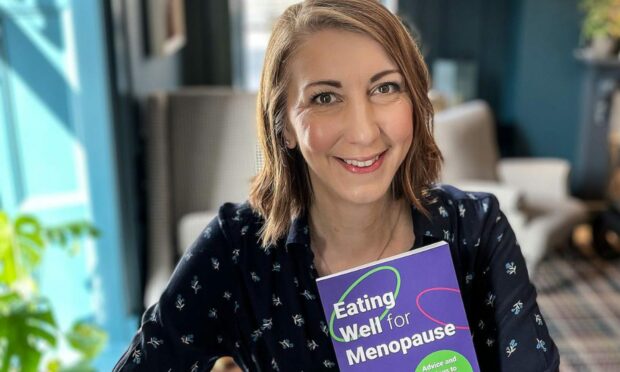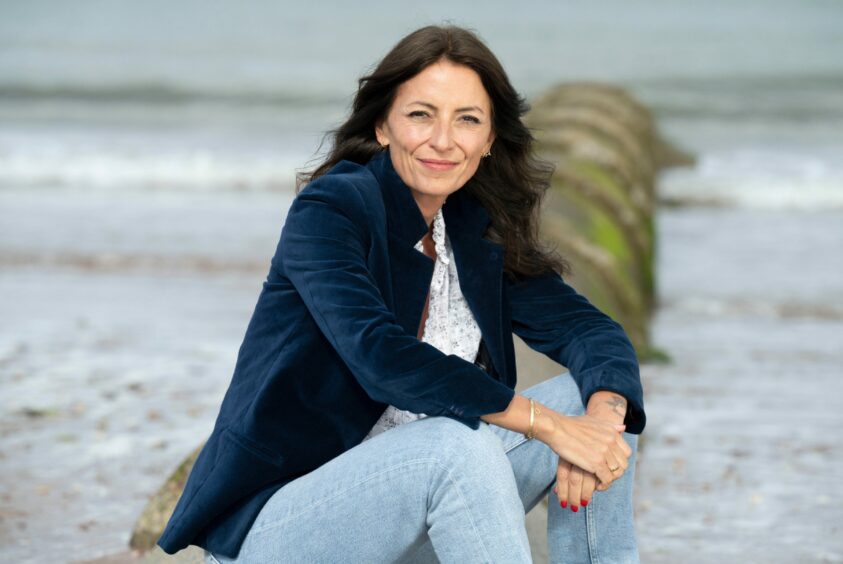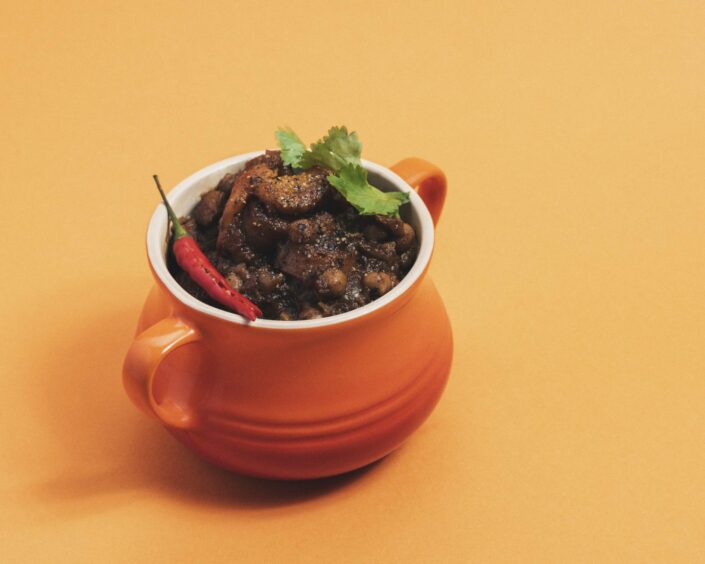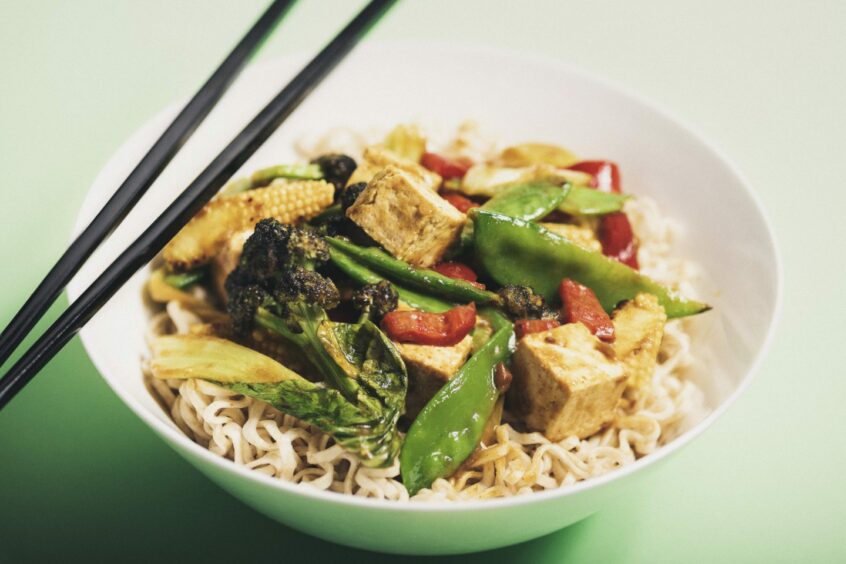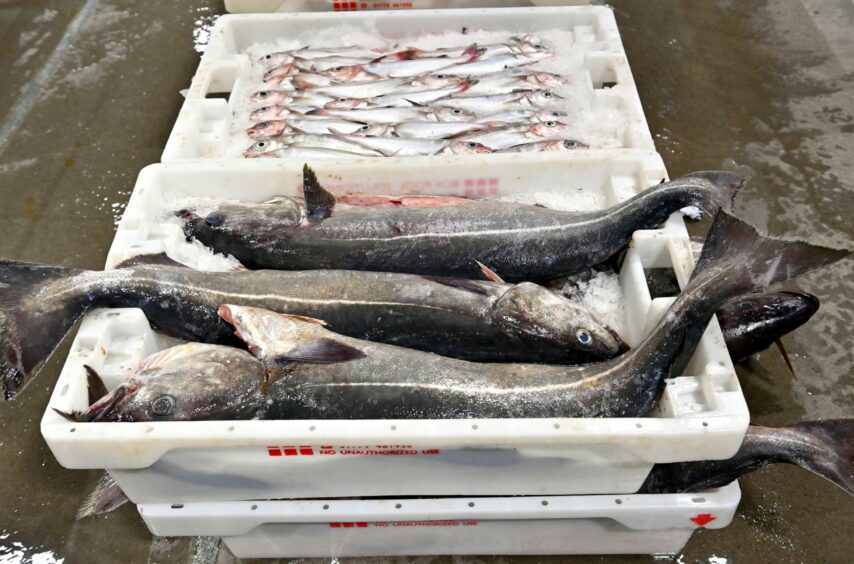It is the question everyone in the north-east of Scotland is asking – should menopausal women eat butteries?
Ok, maybe not everyone is asking it.
But I’m speaking to nutritionist Laura Wyness, who has just written a book called Eating Well for Menopause.
Laura is from Aberdeenshire, so as far as I’m concerned it’s the obvious question.
Because surely the Aberdeen University graduate who grew up on a farm near Fyvie has an opinion on the magnificent buttery.
Of course she does. But I’ll save that for later.
First, there is the important matter of Laura’s new book, which she has co-written with fellow registered nutritionist Lynn Burns.
Called Eating Well for Menopause, the book was developed out of conversations Laura and Lynn had with clients who were asking for information on what foods they could eat to manage the various symptoms of the menopause.
The menopause, which generally hits between the ages of 45 and 55, can be a challenging time for women.
There’s not only a new landscape of health effects to navigate – tiredness, weight fluctuations and the so-called hot flushes – it often comes at a uniquely hectic time of life when there are children to look after as well as aging parent.
On top of that there is what Laura says is a “taboo” around the menopause itself – an unwillingness to discuss it.
For example, when studying nutrition at Aberdeen University, Laura says the menopause was mentioned just once in one solitary lecture.
“That was it,” she says. “I think round the north-east as well, in Aberdeenshire areas, it’s just not something that’s talked about, or certainly wasn’t talked about.”
Menopause and the Davina McCall effect
In the past two years, however, conversations around menopause have increased.
Laura calls it the Davina McCall effect, after the TV presenter and her taboo-busting documentary that aired on Channel 4 in 2021.
The programme opened the gates to frank discussions in the media about the menopause, and though Laura points out that she started her book before Davina spoke out on the issue, she says the presenter’s candidness has raised awareness of menopause symptoms and how difficult they can be to cope with.
Laura’s book, then, contains a wealth of information on foods to eat and what to avoid to lessen those symptoms.
It is also a recipe book and includes a number of delicious-looking dishes that contribute to a healthy menopause diet.
And while Laura, who has worked for the World Health Organisation, the Women’s Health Council and the British Nutrition Foundation, admits diet is “not a magic bullet”, eating the right food can mitigate menopausal symptoms, while also allowing the body to be more energetic.
“It is important to eat the right balance of foods to maintain that blood glucose levels, so you’re not fluctuating too much and having those energy spikes and dips,” she says.
Tips include eating more soya to combat hot flushes, as it contains plant compounds similar to oestrogen that can make up for the menopause’s effect of a drop in human oestrogen on the hypothalamus.
Laura, meanwhile, advocates for the Mediterranean diet as research shows it is linked to lower gains in waist circumference and a reduced risk of abdominal obesity in post-menopausal women.
Difference between eating well for menopause and just eating well
Indeed, much of the advice dovetail nicely with more general healthy-eating guidelines.
In the book, there is a wonderful-looking lamb tagine recipe that I’m keen to try myself, as well one for a tofu satay stir-fry.
Which begs the question: What’s the difference between eating well for menopause and just eating well?
“Not a huge amount,” says Laura. “But there are nuances. And all of the recipes in the book can be enjoyed by the whole family because they are generally healthy recipes.
“But the differences would be we really focus on including recipes or foods that will include the key nutrients for bone health and heart health and foods that will help potentially with hot flushes.”
This brings us to butteries.
Does Laura consider them healthy and nutrient-rich enough to feature in a future edition of Eating Well for Menopause?
“That’s pushing it a little bit,” she says. “But it’s all about balance. So, if you load it up with lots of berries and other fruits and a nice yogurt on top and have a mini buttery – a mini wholegrain buttery – perhaps that’s fine.”
The importance of fish for menopausal eating
It’s not exactly the gold seal of approval, but it’ll do for now.
And Laura is soon forgiven because she goes on to give her full backing to another north-east staple – Peterhead and Fraserburgh fish.
“Oily fish like salmon or trout or mackerel – that’s really great,” she says. “The omega three fats are really good for both for heart health and brain function, and for potentially for sleep.”
So there you have it. The menopausal north-east diet is plenty of fish.
And the occasional buttery.
Eating Well for Menopause: Advice and recipes to improve your health and well-being by Dr Laura Wyness and Lynn Burns is available in paperback (£19.99) and ebook (£9.99).
